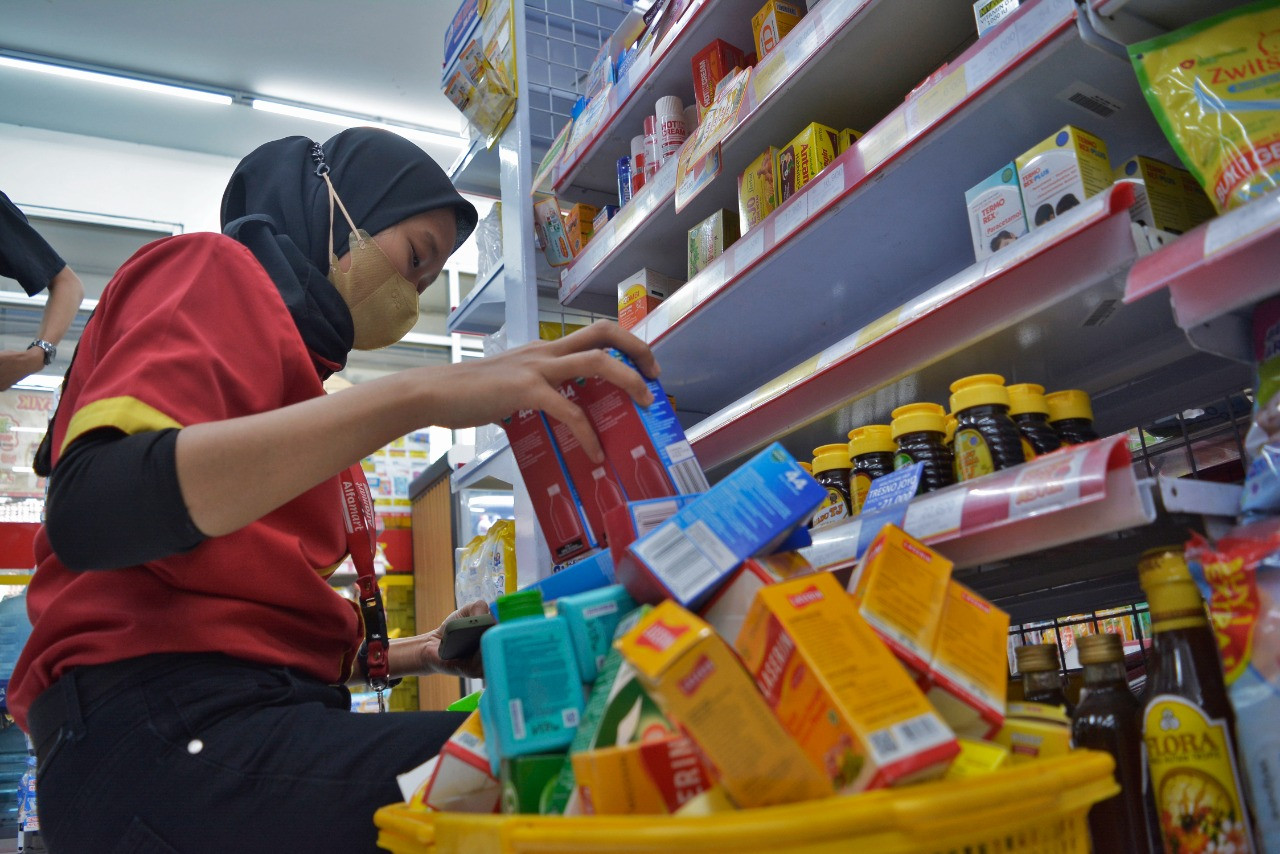Popular Reads
Top Results
Can't find what you're looking for?
View all search resultsPopular Reads
Top Results
Can't find what you're looking for?
View all search resultsGovt blames kidney failures on big pharma
The Health Ministry said it has “75 percent confidence” that the poor production quality of a solvent widely used in medicinal syrups was the cause of a string of acute kidney injury (AKI) cases that has resulted in nearly a hundred child deaths.
Change text size
Gift Premium Articles
to Anyone
T
he Health Ministry on Friday said that it had “75 percent confidence” that the poor production quality of a solvent widely used in medicinal syrups was the cause of a string of acute kidney injury (AKI) cases that has resulted in nearly a hundred child deaths.
It is the latest hypothesis to come out of an investigation by an expert team formed by the ministry, which detected compounds that might have caused AKI in sick children and in the medicines they consumed before falling ill.
Health Minister Budi Gunadi Sadikin explained that the early results of current examinations had alluded to the deaths being caused “not by pathogens” like bacterial or viral infections, but by dangerous chemical properties having entered the bodies of sick children.
The chemical compounds – ethylene glycol (EG), diethylene glycol (DEG) and ethylene glycol butyl ether (EGBE) – were not among the ingredients of medicinal cough syrups, but rather impurities carried by poorly produced polyethylene glycols.
“Polyethylene glycol is not a dangerous chemical in and of itself. However, if it is not well produced, and the resulting quality is poor, then it will produce impurities like EG and DEG. The body will then metabolize [these impurities] into oxalic acid,” the minister said in a press conference.
Once oxalic acid enters the body, Budi explained, it turns into calcium oxalate crystals that are dangerous and “could destroy young children’s kidneys”.
They are one of the most common forms of kidney stones.
The minister said that ensuring the quality of polyethylene glycol is maintained was “the responsibility of the [pharmaceutical] industry”, and that the ministry had since issued calls to manufacturers for an immediate self-examination of the production of their ingredients.
“We’ve asked industry players to perform [examinations] sooner rather than later, after which the results will be verified by BPOM [Food and Drug Monitoring Agency],” he stated.
“BPOM is still the supervisory board on the matter.”
According to ministry data, there have been a total of 241 cases recorded as of Oct. 21.
EG, DEG and EGBE compounds are not inherently dangerous when consumed in small doses, but can prove fatal when taken in unprescribed doses, Budi added.
Despite current results pointing to faulty production as the primary culprit of the deaths of 99 children, the ministry was still “not 100 percent sure” which chemicals were in fact dangerous, the minister said.
But, playing it safe, the government decided to take the conservative step of banning five medicinal syrups proven to contain EG “at a dose exceeding safety standards”.
Rainy days ahead
On Thursday, BPOM announced a nationwide recall and disposal of five medicinal syrups from the market, PT Konimex’s Termorex Syrup, PT Yarindo’s Farmatama’s Flurin DMP Syrup and three variants of Unibebi cough and fever syrups from Universal Pharmaceutical Industries.
The recall was announced alongside a disclaimer that there was still no supporting evidence to prove that “the use of the syrups was correlated with AKI”, citing other possible risk factors such as viral infections, Leptospirosis and post-COVID Multisystem Inflammatory Syndrome in Children (MIS-C).
And while precautionary steps have revolved mainly around the recall of medicinal syrups, reports of children dying from AKI without having consumed any medicinal syrups have also started to surface.
With the current weather of consistent rain – when children are more vulnerable to fevers and colds – the lack of information available on medicinal safety, and the contradictory nature of what is available, has provoked anxiety and frustration among parents.
“Truth be told, I am quite angry with the inconsistency of the information available,” said Lutfi, a mother of one to The Jakarta Post on Friday. “Some are saying [the deaths are linked] to COVID-19, [while others] are claiming it has something to do with the medicinal syrups.”
“BPOM then listed some medicines unfit for distribution, while saying that there is no evidence of correlation between the deaths and the syrups’ ingredients.”
Yuliana, a mother and media professional, told the Post that the lack of clarity had made medicating her currently sick daughter a tricky feat to overcome. While she has switched over to prescribing ground-up paracetamol tablets, she admitted that she had little knowledge of measuring the correct dosage.
“There should be information on what alternatives are available. [This includes] how parents could treat their children’s fever, and how many grams of the tablets could be ground up for treatment,” she said on Friday.
“But I am more angered by how BPOM could let this happen. Its function is to supervise medicines, so how could this miss its radar? There were too many days between the first AKI deaths and when the medicines were suspected too,” she added.
Besides concerned parents, the recent cases of AKI have also put pressure on hospitals too, said Budi, who noted that “the capacity of Cipto Mangunkusumo Hospital (RSCM) is starting to reach its limits”.
‘All in compliance’
Responding to BPOM’s instructions, Konimex’ chief executive officer Rachmadi Joesoef on Friday said the firm would comply with the recall of Termorex Syrups, although not before underlining that none of its products contained EG and DEG.
“PT Konimex has consistently done its due diligence in ensuring that all of the ingredients used [...] comply with the requirements of the standards issued by the government,” the statement said.










